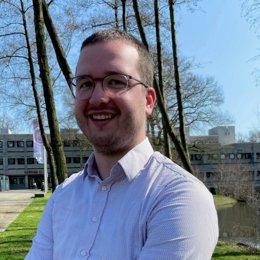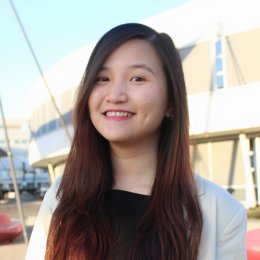Next to the obligatory part, there is freedom in structuring your Master’s in Educational Science & Technology (EST). Part of the content is customisable, which means you get to actively shape your learning path. This way, you will build your own expertise.
Part-time or full-time
You can follow this Master’s full-time (1 year) or part-time (2 years). If you decide to follow the study part-time, you need to have at least 2, but preferably 3, days per week available for study purposes. You will take fewer courses per quartile, so the study load is stretched over a longer period of time. But there are no part-time adjustments within courses. Classes are usually scheduled on two fixed days as much as possible, enabling you to combine the part-time Master’s with for example your part-time job or other activities and/or responsibilities.
Structure
The programme contains of four mandatory courses. In addition, you can choose four elective courses, one in each quartile. You can choose to focus your study programme on the field of Formal Education or the field of Human Resources Development. You can also choose a more blended approach, by mixing electives of both fields. During your second semester (or second year for part-timers) you will work on your individual final project. You can choose from the projects offered by the programme for which you can submit your preference.
Compulsory course | 20 EC | |
Elective courses | 20 EC | Block 1A Block 1B Block 2A Block 2B
|
Master’s thesis | 20 EC | |
Total EC | 60 EC | |
Master’s thesis
You will complete the Master’s Educational Science & Technology by writing your master’s thesis. The choice of your final project is largely up to you, because you can submit your preferences after the presentation of the possible final projects offered. Several projects tap into ongoing research at UT.
Questions?
Do you want more information about this Master's or the option to pursue this Master's in a part-time mode? Contact the study adviser, or get in touch with a student via an online meet-up.




